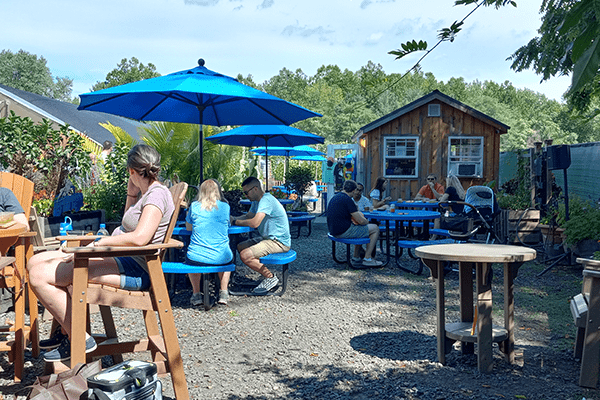|
RCBJ-Audible (Listen For Free)
|
Effort to Establish Agritourism Zoning In Orangetown Hits Another Roadblock Over Lawsuit Involving Van Houten Farm
Battle lines were drawn. Facebook pages and websites were created. The fight over whether Rockland Cider Works at Van Houten Farm at 68 Sickletown Road looked like it might have been headed toward a compromise that would have allowed the cidery to resume operating. The Town of Orangetown had planned on Tuesday to hold a public hearing on a proposed text amendment that would have created agri-tourism opportunities in residential zones by special permit.
But at the last minute, the Town pulled the hearing from the agenda, citing an order restraining the trust that owns Van Houten Farm from pursuing the desired zone change. It is unclear why the town yanked the proposed amendment from its agenda because the town is not a party to the lawsuit but Town Supervisor Teresa Kenny said the decision was made due to wanting to exercise “an abundance of caution.”
Kenny said in an email to interested parties, “Although the Town is not a party to this action, as a result of the Order the matter is being postponed until January 23, 2024 pending further court determinations.”
On Monday, Alak Shah of Feerick, Nugent, MacCartney, the attorney representing Christopher and Sharon Van Houten, who live in a single-family house on the property and are seeking to establish their rights to land on the farm that they have been occupying for decades, filed for a restraining order seeking to halt the public hearing and the proposed resolution. Christopher and Sharon Van Houten were served with a 10-day notice to vacate their home back in September.
The order, signed by Rockland County Supreme Court Justice Amy Puerto after hours on November 27 (the evening before the public hearing), restrained the cidery, through the trust that owns the land, from prosecuting its “Verified Petition for a Zoning Text Amendment (“Petition”) to change the use on the property… pending a final, non-appealable judgment in this action.” The order also stayed the public hearing scheduled for last night, again pending a final, non-appealable judgment.
Kevin Conway, counsel for the Van Houten Farm Market Benefit Trust, requested relief from the order. At 4:08pm, hours before the public hearing was scheduled, Puerto agreed to allow argument in her court on Nov. 30 at 2 pm, but declined to rescind the restraining order that caused the cancellation of the public hearing.
Conway also has a motion pending to dismiss the action filed by Christopher and Sharon Van Houten, which Conway said has already been litigated and lost.
“I’ve never seen anything like it,” said an attorney who did not want to be identified. “Courts don’t enter prior restraints against municipal governments holding public hearings or passing laws. If there is a problem with the law or its passage, the complainants can always file an Article 78. There is also a separation of powers argument against court interference in town proceedings particularly when the town is not even a party to the suit.”
Rockland Cider Works, which opened in Aug. 2019, has been at the center of ongoing litigation from neighbors who say traffic, noise and overflow parking have devalued their properties.
In January 2022, the cidery sued the town, asking the court to decide whether the operation could be sustained given the ambiguity in the zoning code. The court dismissed the cidery’s case, saying the fight was with the town, and the cidery should have gone to the Zoning Board of Appeals, not the Court.
Meanwhile in a separate suit filed last summer, the neighbors successfully argued for closure, claiming the town was not enforcing its zoning laws and relied on a little-used New York law that allowed neighbors to step in when towns fail to act. This case is pending but would likely become moot if the text amendment was passed legalizing the cidery’s operation.
Earlier this year, the cidery went back to the drawing board and sought a text amendment to the Town of Orangetown zoning code that would have legalized its operation at the current site. The text amendment would allow agritourism, wineries, cideries and other agricultural uses by special permit on any five-acre-plus property in a residential R-40 or R-80 district with many restrictions on setbacks, lighting, parking and accessory uses.
In April, the Town of Orangetown hired the Laberge Group of Albany, at the cidery’s expense, to prepare a report on the proposed amendment, and make recommendations, to allow the cidery to operate while balancing the interests of the cidery and its neighbors.
Months of information sessions and public hearings modified the proposal, and last night at the Orangetown Town Board meeting, a vote on the amendment was expected. Each side planned to bring out their supporters for what might-have-been a final public hearing and a vote on the text amendment.















